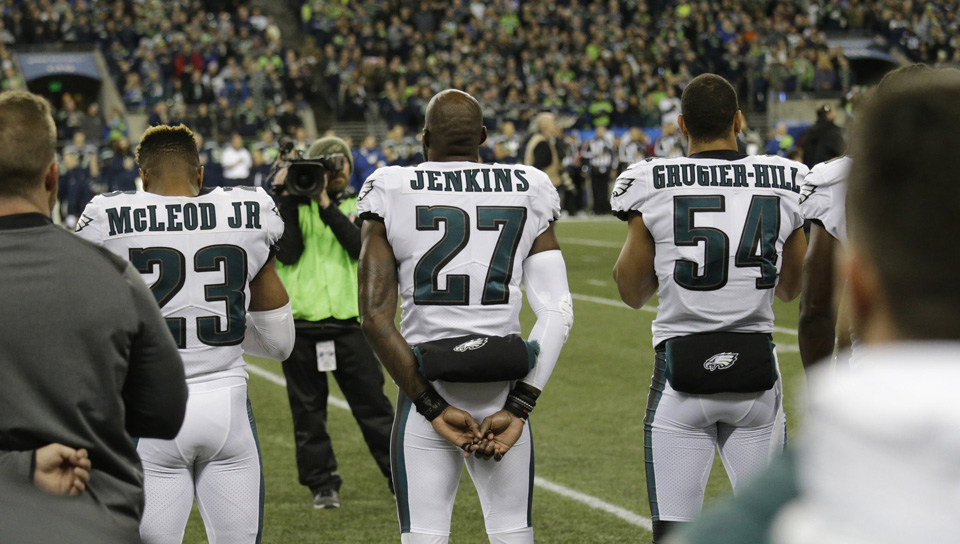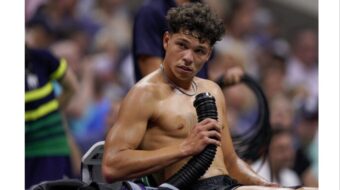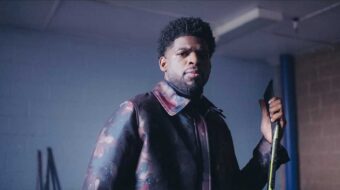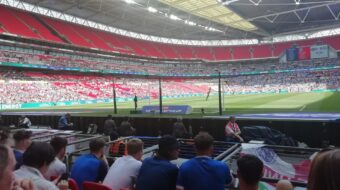
“NFL, Players Coalition reach accord to provide nearly $90 million to aid activism; anthem protests unresolved.” That was the Washington Post sports page headline on Thursday, November 30.
I was shocked.
The announcement that NFL player representatives and league officials reached a tentative agreement providing league money to support players’ social justice causes—focusing on African-American communities—was an unexpected move for a major professional sports league.
Under the proposed deal, $89 million will be set aside over seven years for local and national projects. Nationally, NFL owners will allocate $5 million, with their contributions growing annually and capping out at $12 million per year, from 2021 through 2023.
From the outside looking in, this seems like a victory for the Players Coalition—led by Philadelphia Eagles safety Malcolm Jenkins and former NFL wide receiver Anqaun Boldin—and for social justice. But there’s a catch. As part of the deal, the NFL wants players to end their protests.
The deal itself does not directly address the ongoing protests by players during the national anthem, but owners were clear in their hopes that such an agreement would lead players to voluntarily stand for the anthem. That implication did not sit well with other members of the coalition and has led to much division.
Miami Dolphins safety Michael Thomas and 49ers safety Eric Reid were the first to withdraw from the coalition.
“The Players Coalition was supposed to be formed as a group that represents NFL athletes who have been silently protesting social injustices and racism,” Thomas and Reid said via Twitter. “However, Malcolm and Anquan can no longer speak on our behalf as we don’t believe the coalition’s beliefs are in our best interests as a whole.”
The biggest issue for Reid—first to follow teammate Kaepernick in taking a knee—was that Jenkins excluded Colin Kaepernick from meetings and asked players if they would stop protesting if the NFL made charitable donations to causes they support.
“Malcolm did text me this morning asking if we would be comfortable ending our demonstrations if the NFL made a donation,” Reid told ABC News. “At that point, that was the last straw for me. He had a conversation with the NFL. We agreed that multiple people would be part of the conversations with the league so it just wouldn’t be him. He didn’t stand by his word on that. At no point did we ever communicate an agreement with the NFL to end the protest.”
Jenkins’ response to that charge: “I’m not sure about whether Kaepernick wants to be involved, I saw this as an opportunity to create a group of players that could use their voice together to really make some change, and we still have that opportunity. We’ve been able to go from protests to now speaking with ownership about something that’s never been in place before. We’re proud of that. And we’ll continue to work with whoever wants to be in that conversation.”
For sports addicts like me, as week 13 of the regular season edged closer, our eyes and those of NFL team owners were focused on one game: Seattle Seahawks vs Philadelphia Eagles.
Would there be a national anthem protest?
Was the temptation of money for good causes enough to stop the kneeling?
Jenkins had said that he would no longer be raising his fist, but his Eagles were facing a team full of players pissed off by the coalition’s action.
As blue and green birds took to the field Sunday night, December 3, and the national anthem blasted over the loudspeaker, Nine Seahawks took a knee while Jenkins stood silently.
With such a visible divide, it is clear that there are now two strategies in the NFL protest movement, for two different outcomes: Victory against police brutality through grassroots channels—outside the mainstream—and protest or victory while working within the “proper” channels—police departments, elected officials, and team owners.
Kaepernick takes to the streets while Jenkins enters the halls of power. Kaepernick received Sports Illustrated’s Muhammad Ali Legacy award and the NFL Players union award for community outreach, while Jenkins is expected to receive the Eagles’ Walter Payton NFL Man of the Year award.
As it stands, the deal has yet to be formalized and team owners will be meeting to discuss the tentative agreement December 13.
So, the real question left to answer is: Did the Players Coalition sell out the movement? Or did it “buy in” to play the system?
I would like to hear from you, our readers, on what you think the answer is.
I’ll be mulling this over, too and thinking about this one line, sung by the late Joe Strummer: “Ha, you think it’s funny…Turning rebellion into money.”
Please send your thoughts and comments to: alneal@peoplesworld.org












Comments